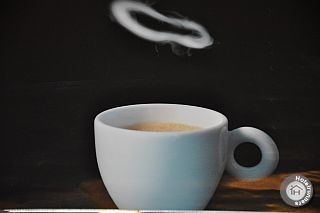
Your coffeeshop |
 |
The Story of the Weed Pass
Last updated 19-January-2014
As of January 1, 2012, the Opium Act (Opiumwet in Dutch) has been modified in regards to the coffeeshop policy in the Netherlands.
The Opium Act is part of the Dutch law relating to psychotropic and addictive drugs, defining and making a clear distinction between hard and soft drugs.
Coffeeshops where cannabis products are sold under strict regulation, now open to everybody who is eighteen years or older, will turn into members-only clubs that are accessible to residents of the Netherlands exclusively.
|
|
|
|
This membership system is also known as the “weed pass” system (wietpas). Three new criteria have been added to the existing coffeeshop tolerance policy. The enforcement of the new criteria will be introduced in phases.
|
|
|
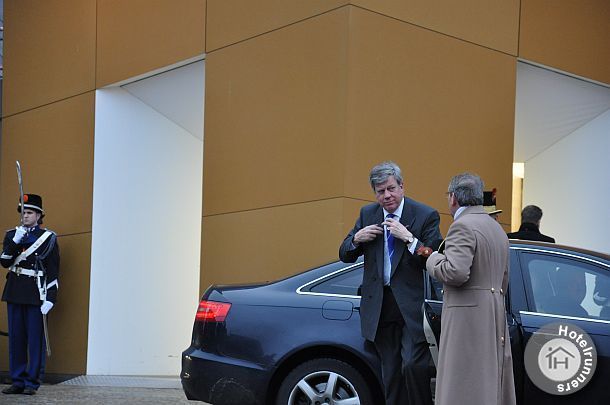 |
|
Ivo Opstelten, the Justice and Security Minister still in charge |
|
|
|
The first new criterion, the “private-club criterion” (besloten-clubcriterium or b-criterium), states that only registered members will be allowed in coffeeshops. A coffeeshop can have a maximum of two thousand members.
|
|
|
|
Name, post code, city of residence, and date of birth are required for registration. Members will be issued an official club pass which must be checked every visit.
The second criterion, the “resident criterion” (ingezetenencriterium or i-criterium), dictates that only residents of the Netherlands eighteen years or older can obtain membership in a coffeeshop.
Applicants must show proof of residency no older than four weeks indicating their current address.
In effect, this means that tourists will be denied access to Dutch coffeeshops.
|
 |
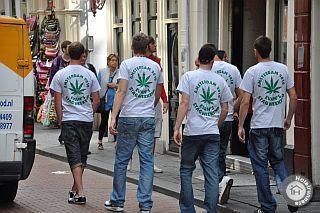
Coffeeshop tour |
|
|
|
The third criterion is the “distance criterion” (afstandscriterium), which states that the minimum distance between a coffeeshop and a school for people younger than eighteen years old must be at least 350 meters.
|
|
|
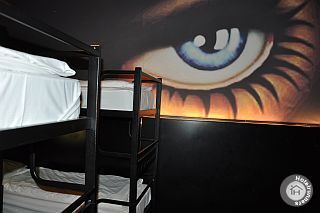
The system is watching you |
 |
According to research by Dutch newspaper NRC, this would mean that 187 of the 223 coffeeshops in Amsterdam would have to close.
Enforcement
The enforcement of these three criteria will take effect in phases in order to enable municipalities and coffeeshop operators to prepare for the changes.
It will be enforced by the local governments, police, and the public prosecution service.
From May 1, 2012, the private-club criterion and resident criterion began being enforced in Limburg, Noord-Brabant, and Zeeland, which are the southern provinces of the Netherlands bordering Germany and Belgium.
|
|
|
|
The rule limiting coffeeshops to two thousand members will not yet be enforced. Municipalities in other provinces are free to enforce these criteria early on a voluntary basis.
|
|
|
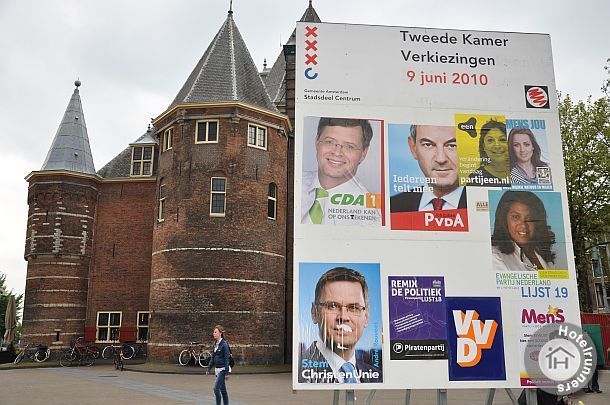 |
|
Election posters on Nieuwmarkt |
|
|
|
By January 1, 2013, the private-club criterion, resident criterion, and limit on amount of coffeeshop members will be enforced nationwide, including in Amsterdam. On January 1, 2014, the distance criterion will take effect.the 1st of January 2013, the 2000 members limit and the private club and resident criteria will be enforced nationwide, including Amsterdam. On the 1st of January 2014, the distance criterion will take effect.
|
|
|
|
Why?
The former coalition government, consisting of Prime Minister Mark Rutte’s the People's Party for Freedom and Democracy (VVD) and the Christian Democratic Alliance (CDA), with the parliamentary support of Geert Wilders's anti-immigration Freedom Party (PVV), incorporated these policy changes on soft drugs in the coalition agreement of 2010.
Minister of Justice and Security Ivo Opstelten and his CDA party are strong proponents of the new law. They are striving for a decisive, hands-on approach in combating drug-related nuisance and organized crime.
Coffeeshops need to be smaller and better regulated, according to Opstelten.
|
 |
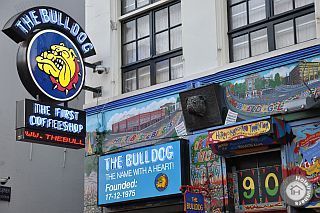
Claimed to be the first, with registration number 002 |
|
|
|
|
The implementation of the new soft drugs policy should attract fewer foreigners and protect minors against exposure to soft drugs.
|
|
|
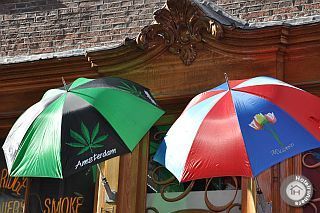
The weather the tulips and the cannabis |
 |
The anti-coffeeshop movement started in the border towns in the south of the Netherlands.
Residents were fed up with soft drugs tourism and drug-related nuisance and crime due to a large amount of people from neighboring countries crossing the border just to buy and smoke marijuana.
Some of these towns already took local measures and moved the coffeeshops out of the center, closed them down, or introduced their own policy of banning tourists.
European Court of Justice
The tourist ban was protested by coffeeshop owners, who argued that it is against EU principles of freedom of movement and non-discrimination, and the case was brought to the European Court of Justice.
|
|
|
|
|
The Court ruled in December of 2010 that the policy is not against the European agreements, stating that “as the release of narcotic drugs into the economic and commercial channels of the European Union is prohibited, a coffeeshop proprietor cannot rely on the freedoms of movement or the principle of non-discrimination in so far as concerns the marketing of cannabis.”
|
|
|
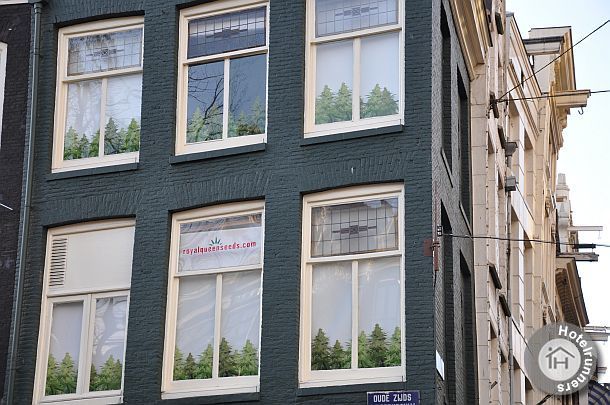 |
|
Decoration only |
|
|
|
Restricting sales is “justified by the objective of combatting drug tourism” and reducing public nuisance, according to the Court. The ruling consequently cleared the way for the nationwide introduction of the weed pass system.
|
|
|
|
The coffeeshops in Maastricht are still trying to argue their discrimination and privacy infringement case in court.
This, along with their self-imposed restriction allowing only locals and neighbors from Germany and Belgium but not France, seem like a hopeless and desperate attempt at keeping their coffeeshops open to some form of general public.
Economic interests
Implementing the weed pass system could have a major impact on the economy in the Netherlands.
Although politicians rarely address this threat, many residents are concerned about the potential consequences.
|
 |
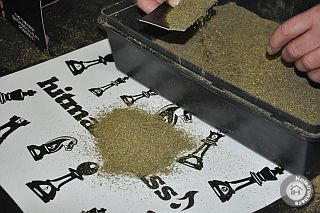
Lots of weed at last years 'Cannabis Cup' |
|
|
|
|
According to Jan Brouwer, Professor of Law at the University of Groningen, enormous economic interests are tied up in the trade of soft drugs. Tourists who visit the coffeeshops also do other things in the city and are an important source of revenue. The introduction of the new system will cut away at that revenue, according to Brouwer.
|
|
|
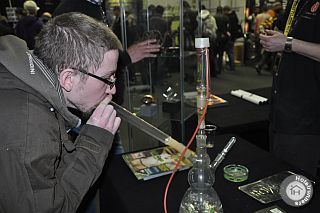
Vaporizing with the Verdamper |
 |
As it turned out, the southern city of Maastricht lost over half a million euros only in fines and parking tickets during the six months following the introduction of the new drug policy.
Many argue that the weed pass system addresses a problem that does not exist in most cities in the Netherlands, and many city councils do not agree with the policy changes.
Many argue that the weed pass system addresses a problem that does not exist in most cities in the Netherlands, and many city councils do not agree with the policy changes.
They fear it will only lead to the creation of illegal drug markets as most people do not want to be registered as a drug user. This concern is also shared by Dutch criminologists like Nicole Maalsté, writer of the book Polderwiet.
|
|
|
|
|
The city councils of all larger cities in the Netherlands are against the system as they worry that both tourists and local residents will resort to the streets, causing drug-related nuisance and crime to increase. It is also feared that the use of hard drugs will rise as the sale in illegal markets will not be separated.
|
|
|
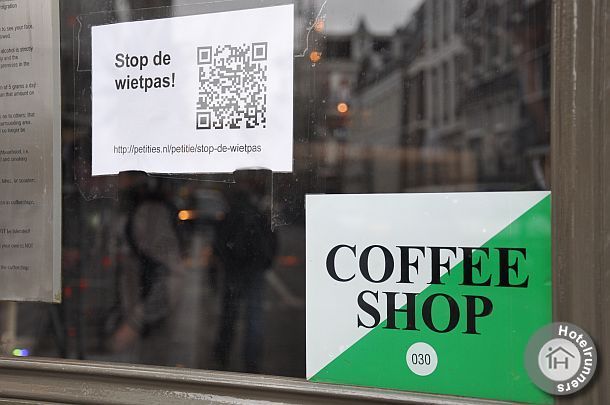 |
|
Gathering support |
|
|
|
Amsterdam
Mayor Eberhard van der Laan of Amsterdam is against the new policy. When part of the trade in soft drugs moves to the streets again, authorities cannot monitor the quality of the goods or prevent the sale of drugs to minors.
|
|
|
|
He also believes that the system will lead to illegal resale and street trading, resulting in an increase in public nuisance, crime, and health risks.
Tourists in Amsterdam, including those attracted primarily by the availability of coffeeshops, do not cause much of a nuisance, he claims.
A report by the Department of Research and Statistics in Amsterdam made in 2007 shows that of the 4.5 million tourists who spend the night in Amsterdam during a given year, 26% visit a coffeeshop.
According to the Amsterdam Tourism and Convention Board, 10% of tourists mention soft drug use as a primary reason to visit the city.
|
 |
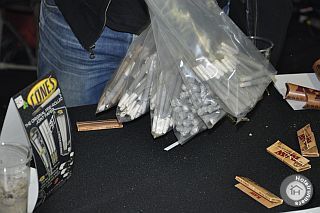
Joints for the show at Amsterdam’s Melk Weg |
|
|
|
|
Banning the tourists from the coffeeshops might therefore have a big impact on the whole tourism industry. The timing is also poor as the Central Bank of the Netherlands (De Nederlandsche Bank) forecasted a shrinking Eurozone and Dutch economy, and consumer confidence is dropping sharply.
|
|
|
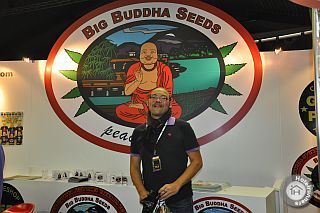
Big Buddha Cheese |
 |
Implementation in Amsterdam
City councils and mayors of larger cities, including Amsterdam, have campaigned to maintain local authority and make their own policy.
Minister Ivo Opstelten has announced, however, that Amsterdam and other big cities will be no exception.
Many business owners, locals, and even some tourists do not believe the new law will be enforced in Amsterdam.
|
|
|
|
|
They say that the government has been threatening to ban the tourists from coffeeshops for years. Jan Brouwer believes there is reason to doubt the efficacy of such a policy because the basis for a ban on sales to foreigners will have to be set out in a local by-law, which would mean city councils could ignore the weed pass system, but this has not been confirmed in any official report.
|
|
|
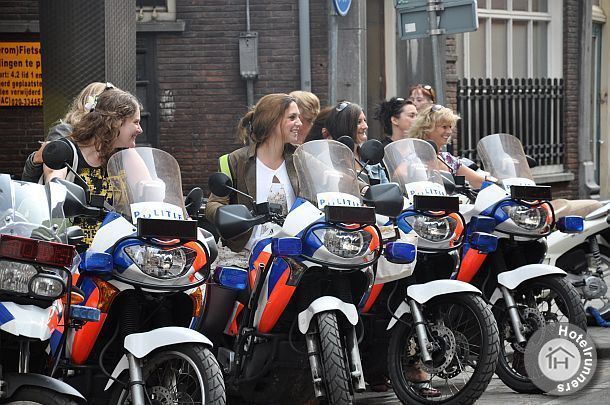 |
|
Being optimistic about the implementation |
|
|
|
National law states that city councils must implement and enforce the new drug policy. However, the details concerning enforcement have yet to be settled and could vary by case and city.
|
|
|
|
The Ministry of Safety and Justice say the responsibility belongs to the mayor, in cooperation with the public prosecution service and the police, to enforce the new policy while also taking local priorities into account.
The city councils are at liberty to decide what action to take against coffeeshop owners who do not cooperate with the weed pass system.
Will the city councils close noncompliant coffeeshops, or will the Dutch tradition of tolerance continue and the new policy just be ignored?
|
 |
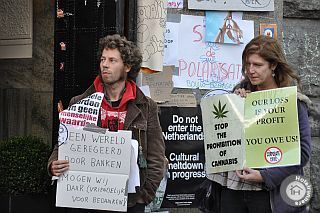
Anti-bank and pro cannabis protesters at Stock Exchange |
|
|
|
|
In an unrelated case, the Amsterdam City Council, under the BIBOB law, has already closed one major chain of coffeeshops in Amsterdam. The Rokerij chain, consisting of four coffeeshops, are allegedly suspected of criminal activities and have lost their license.
|
|
|
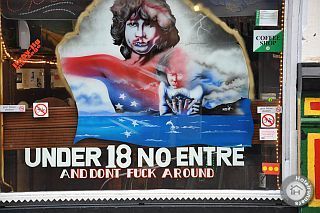
Get the point?!? |
 |
From July of 2012, half of the 32 police stations in Amsterdam were closed, and a new national police force was established and took charge..
Amsterdam: Past and Present
The concept of coffeeshops was introduced in the 1970s to separate hard and soft drugs.
Coffeeshops are permitted to stock up to five hundred grams of soft drugs, while users can have up to five grams for personal use.
The sale of soft drugs to people older than eighteen years is tolerated in the Netherlands but not legal.
Cultivation and purchase of large amounts of marijuana are illegal, which is also known as the “back-door problem”; coffeeshop owners are allowed to sell cannabis but not to buy it.
|
|
|
|
|
The policy was based on the AHOJG criteria regulating coffeeshops, which forbid the sale of hard drugs, large transactions, and sales to minors.
|
|
|
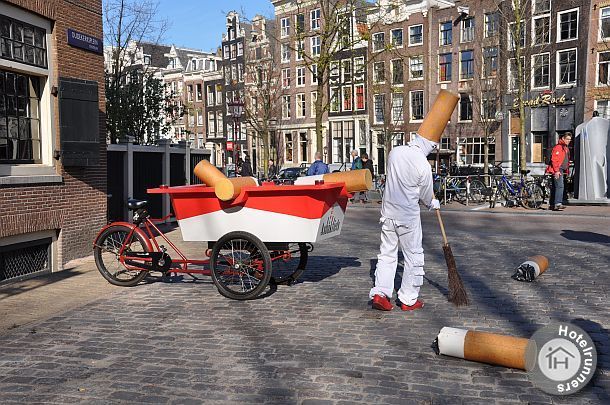 |
|
Smoking is a messy business |
|
|
|
On April 1, 2007, a law prohibiting coffeeshops from selling or serving alcohol went into effect. Smoking tobacco was banned in all public places, including coffeeshops, bars, and cafes, since July 1, 2008. Establishments with separate, well-ventilated smoking rooms away from customers and employees are the only exception.
|
|
|
|
The ban is only on tobacco and does not apply to marijuana, tobacco substitutes, or any tobacco-free products.
Mixing tobacco with marijuana is no longer allowed in the coffeeshops, which makes Amsterdam the only place in the world where the police could walk into a coffeeshop and say, "That better be marijuana you’re smoking, or you’re going to get a fine."
Regulating Cannabis
New regulations banning hashish (a cannabis resin rich in THC) may soon be on the way along with a 15% THC limit on marijuana. THC is the principal psychoactive constituent of the cannabis plant.
|
 |
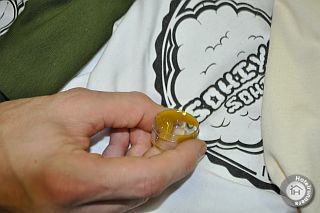
Known as butter |
|
|
|
|
The majority of members of Parliament would like to impose a ban on hashish due to criminal organizations from Afghanistan and Morocco smuggling it into the Netherlands.
|
|
|
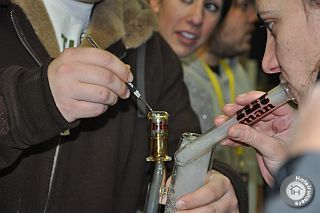
Get the point?!? |
 |
Meanwhile, police claim local criminal organizations, using an estimated forty thousand illegal plantations, smuggle marijuana out of the Netherlands regularly, bringing in annual profits estimated at a staggering two billion euros.
In October of 2011, government officials discussed classifying marijuana with a THC level above 15% as a Class A drug like heroin or cocaine, considering it to be dangerously strong.
Some strains of marijuana can reach above 20%, but to impose and enforce a limit on THC levels would seem next to impossible, according to the National Coffeeshop Association (Landelijk Overleg Coffeeshopbonden).
|
|
|
|
|
Some types of “ice-o-lator” hash (or “nederhash”) listed on many coffeeshop menus can have very high levels of THC. Ice-o-lator hash like Waterworks 60, found at Dampkring and Tweede Kamer, has an estimated THC level of 60 to 80%. “Butter” (or “earwax”) hash, not allowed or sold in Dutch coffeeshops but popular in California, is known to be the strongest and purest.
|
|
|
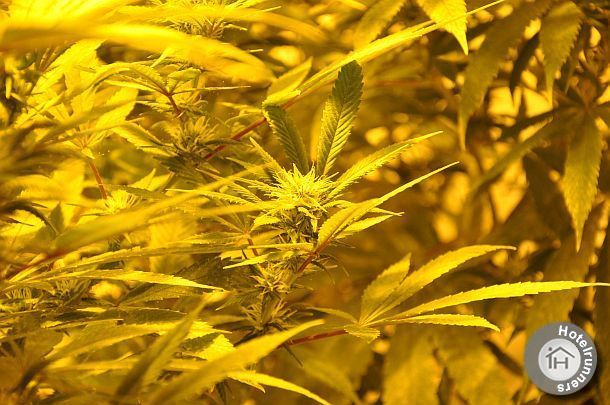 |
|
Plants under the grow light at Amsterdam's Cannabis College |
|
|
|
There is no plan to regulate the cultivation of cannabis, so coffeeshops will continue to buy their supply from the black market. Non-profit cultivation, like the method used by Spanish cannabis social clubs in which club members grow and consume marijuana legally, is not used in the Netherlands.
|
|
|
|
Protesting the Weed Pass
The 420 Anti-Weed Pass Protest March, or “Weed Day”, held April 20, 2012, was a disappointment to some.
The protesters made a very big cloud of smoke, but the demonstration was pathetically small in size. With a total of three police officers patrolling the march, the demonstration did not even make the national news.
No one from the local shops and businesses came to the protest, although they had pledged participation prior to the event, and the only way supporters could find the location (perhaps as a precaution) was to check Facebook one hour before the demonstration.
|
 |
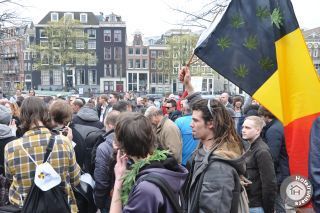
Stoner patriots |
|
|
|
|
What did make the national news was the discovery of traces of marijuana and the Meadowsweet herb in a 4,200-year-old grave dating back to the Bronze Age discovered in the northeastern part of the Netherlands. Given the medicinal and pain-relieving properties of both plants, archeologists believe that the person buried had been ill.
|
|
|
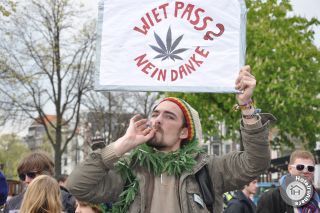
"Fight for your right"... |
 |
Such findings do not seem to aid in the cause against the weed pass system. AP reported, “The government wants to restore the original purpose of the coffeeshops: small local shops selling to local people.”
However, in a European Union with no internal border control and exposed to tourists from all over the world, the original purpose of the coffeeshop becomes more difficult to maintain.
Coffeeshop owners have hired top-ranking lawyers to appeal the “clearly discriminatory” drug policy in court and fight to the very end.
In The Hague on Friday, April 27, 2012, a court ruling was passed in favor of the new drug policy, maintaining that restrictions were not discriminatory or severe.
|
|
|
|
|
The court ruling made international news, and special interest groups, along with the nineteen coffeeshop owners who fought the case, were bitterly disappointed. One coffeeshop owner asked in bewilderment, “We are all criminals?”
|
|
|
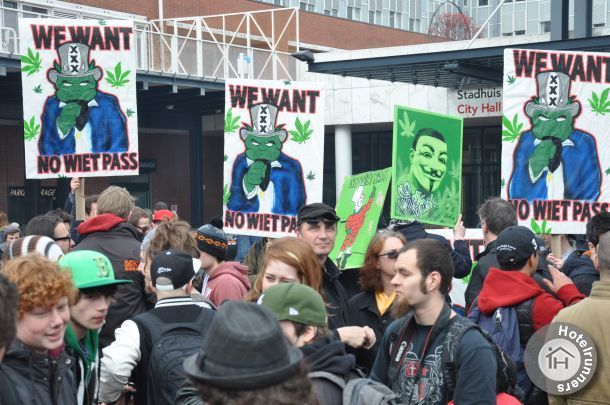 |
|
Taking a stand at City Hall |
|
|
|
The coffeeshop owners are planning for a long, drawn-out struggle. An estimated 70% of coffeeshop clientele and 90% of coffeeshop revenue in Maastricht came from foreign “drug tourists.”
|
|
|
|
Political Hope?
Just prior to the court victory, the former government fell.
Austerity talks between the minority government and the anti-immigration PVV party over sixteen billion euros in budget cuts collapsed, and on the afternoon of Monday, April 23, 2012, Prime Minister Mark Rutte submitted his resignation to Queen Beatrix.
Rutte remained in office to run a “caretaker” government until August 25, when the campaigns for the 2012 national elections on September 12 began.
Twenty-two parties participated in the elections, ten of which were part of the former parliament.
|
 |
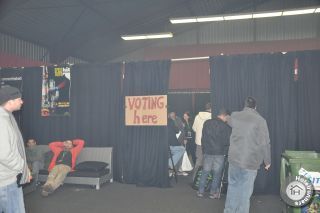
Voting... in the smoke at the 'Cannabis Cup' |
|
|
|
|
An NRC opinion poll determined that 60% of Dutch politicians, including local councilors, members of the Dutch parliament, and Dutch members of the European parliament, expected Rutte to continue as prime minister after the September national elections.
|
|
|
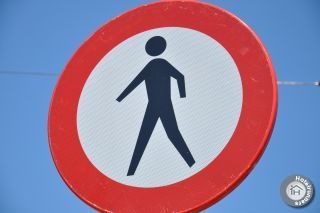
Coffeeshops in the south, no tourists allowed... |
 |
Only 9% of the politicians thought the Labor leader would become prime minister, and 7% thought the Socialist leader would win the position.
A public opinion poll taken by TNS Nipo three months before the national elections found the Socialist Party and the right-wing Liberal VVD in a dead heat.
Each party would have taken twenty-nine seats if the elections had been held in early June. The Christian Democrats, who together with the Liberal VVD composed the former caretaker minority government, would have won eighteen seats. The Labor Party would have taken twenty seats, while Geert Wilders’s PVV would have won nineteen.
|
|
|
|
|
The Beginning of the End
The Dutch southern provinces of Limburg, Brabant, and Zeeland began enforcing the weed pass system on Tuesday, May 1, 2012.
|
|
|
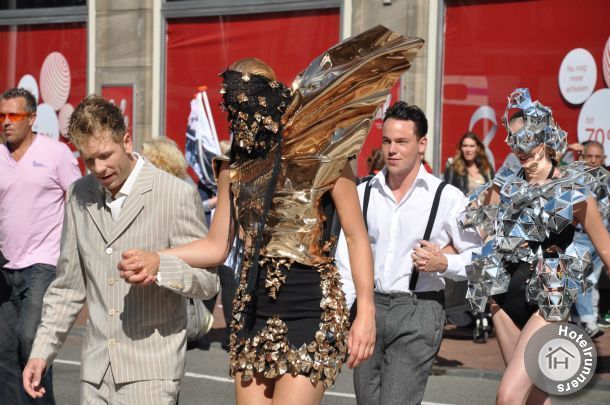 |
|
Rebranding Amsterdam ... a fashion city? |
|
|
|
On the first day, officials were giving written warnings to coffeeshop operators who did not have membership checklists. They were also distributing flyers to inform tourists that they are no longer allowed in a coffeeshop.
|
|
|
|
Many of the coffeeshops temporarily closed to protest the enforcement, but in reality there were not enough customers to justify remaining open, due to the ban on tourists and the unwillingness of locals to register as members.
Foreigners were free to complain about the discriminatory aspect of the ban to the local police, although the public prosecutor openly had no intention of taking action on such complaints. ANP reported that Mayor Onno Hoes of Maastricht claimed, “The system is workable.”
Indeed, locals initially supported the ban, and twenty street dealers (more than usual) were arrested during the first week.
|
 |
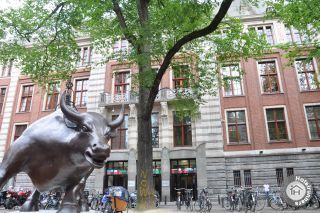
Rebranding Amsterdam ... a financial center? |
|
|
|
|
There was a large increase in complaints by locals about nuisances due to drug use during the introductory month of the weed pass system. In addition, television station Nos reported that 101 arrests on drug charges were made, which was quite significant when compared with an average of five.
|
|
|
|
|
|
|
The only requirement needed to add your comment is a Hotelrunners guest
account. The comments are opinions of those who submitted them and do not
express the opinions of Hotelrunners b.v. |
|
| Trester |
Netherlands
|
1
comments » |
|
06 November 2012 17:49
|
1/2
|
| Dutch problems need Dutch solutions. At the end of a long preparation to adopt a new law there should be a quick decision about not to implement it. |
| B |
Netherlands
|
1
comments » |
|
03 October 2012 20:47
|
2/2
|
| If people in the small towns don't want coffeeshop traffic, thats one thing , but hopefully the new government will use some common sense and see how much more of an eonomic crisis this will bring to big cities like Amterdam and Rotterdam, not to mention the rise in overall street crime. Maybe The Netherlands want the same problems as the United States... |
|
|
To add your comments you need a Hotelrunners guest account.
If you already have a Hotelrunners guest account and you would like to
add a comment, click
log in. If you do not have a Hotelrunners guest account and would like to open
one now, click open Hotelrunners guest account.
You can use the same account to easily make reservations through www.hotelrunners.com in the future.
|
|
|
|
|

